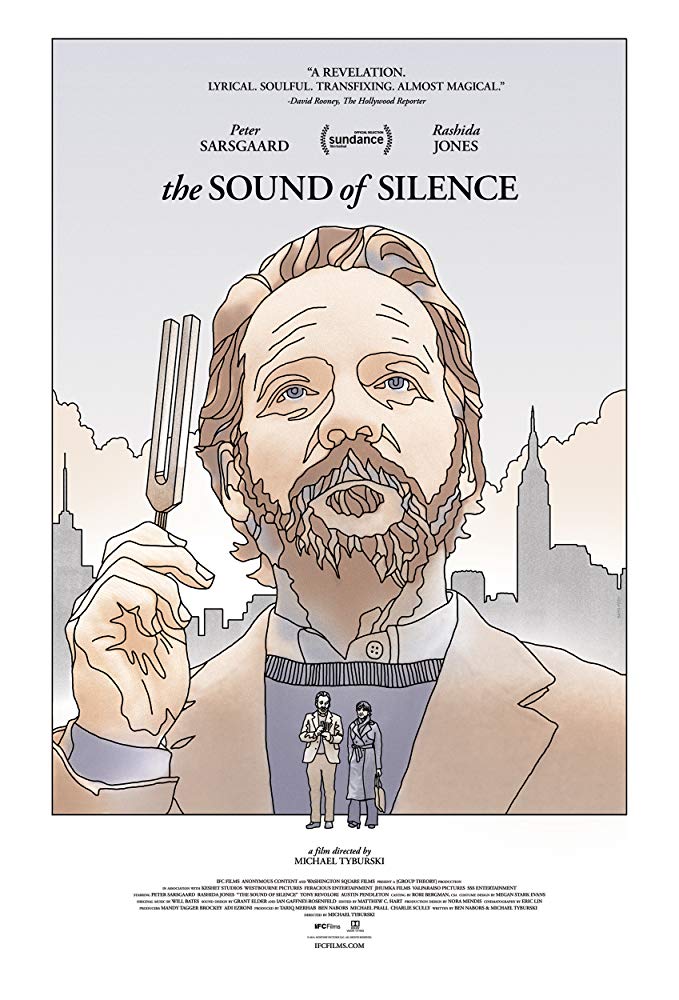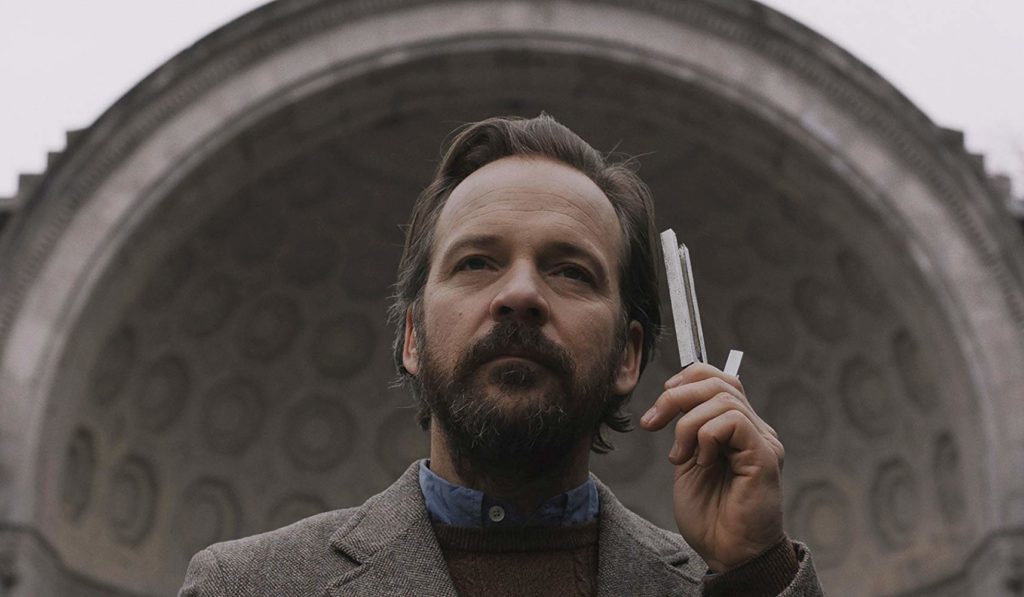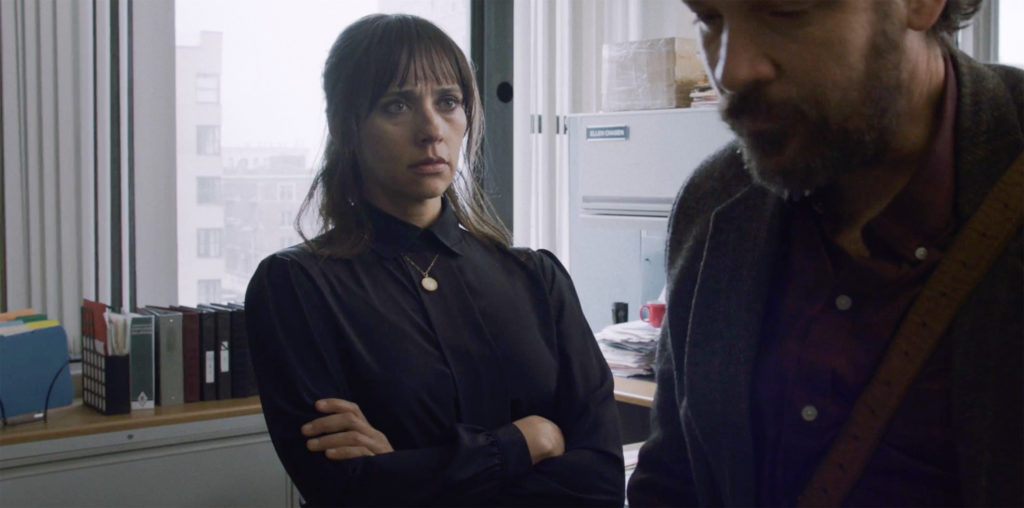Sound. An integral part of our very existence, yet we so often give little if any consideration to the sensory experience or its tonal and emotional construct. When was the last time one gave thought to the hum of the refrigerator or the annoying changes emitted by an aging condenser? Or the sound of a microwave or the buzz of an electric lightbulb? Overlooked in the average course of our existence, and subliminally part of the ambient discourse of life, sound is also often overlooked in film, both as a subject and as part of the cinematic structure. It is a rare treat indeed when we are privy to a film that not only celebrates the conceptualization of sound as a subject and its impact on our lives from a practical and emotional standpoint but presents with a soundscape that is crafted with deliberateness and care as each note, tone, and decibel is shaped to tell a layer of story. That is exactly what director Michael Tyburski does with his feature directorial debut, THE SOUND OF SILENCE.

Co-written by Tyburski and Ben Nabors and expanded from their short film “Palimpsest”, THE SOUND OF SILENCE is a fictional tale about self-proclaimed “house tuner” Peter Lucian, expertly played by Peter Sarsgaard. Gifted at the portrayal of somewhat eccentric characters, Sarsgaard is compelling as one seeks to understand what makes Lucian tick.
Travelling across New York City, Peter Lucian has identified and catalogued the tone of every area (Central Park is a perfect G-major), every item and thing (a toaster, B-flat), and now with his acute ear provides specialized services for the betterment of individual lives. Lucian believes that one has a relationship with their home much like individuals have relationships with each other. When things are unidentifiably amiss in one’s life, much as a counselor or therapist does with couples, Lucian steps in and “fixes” the problem in the home, believing it to be something sonic. His processes are deliberate and methodical. He meets with clients, speaks with them outside of their home to avoid any sonic interruptions within the residence, records everything, and then systematically “plugs in” to each item and room within a home. And yet, Lucian himself is alone, seeming only to be at home under headphones, listening so acutely and intently to the smallest disruptive sonic inflection, all the while awaiting academic acceptance of his philosophies with the publication of his paper on “Sound Patterns in the Urban Experience”. There is a loneliness and poignancy about him that descends into melancholy.

Lucian’s latest client is Ellen, a pleasant and somewhat quiet woman suffering from extreme exhaustion. Believing the aural feng shui of her apartment may be to blame, she reaches out to Peter Lucian. There is a definite connection between Ellen and Lucian that becomes both awkward but intriguing as Lucian moves through each room of the apartment before calmly asking if he can lie on her bed. Just another aspect of his sonic inspection, albeit uncomfortably strange. He eventually comes to the conclusion that Ellen’s difficulties lie with her toaster…although her apartment is a mundane and unflattering C-minor, the “sound of resignation.” But, the solution to Ellen’s problem is simple. Buy a new toaster. Unfortunately, the new toaster doesn’t solve Ellen’s chronic exhaustion. What it does do is serve as a means to keep having Lucian and Ellen interact.
Unfortunately, the interactions are superficial and not due to the performances from Sarsgaard and Rashida Jones who plays Ellen. The relationship between Lucian and Ellen and the corresponding dynamic between Sarsgaard and Jones is interesting yet controlled, modulated, and constraining. At times it feels like Lucian is manufacturing sound issues in order to be near Ellen because he’s too afraid to connect with a different pitch and strike a chord, but in other moments, the pair falls flat and uneven. Definitely an area which could have been explored more deeply by Tyburski, as could additional development of themes on the opportunistic nature of individuals and corporations alike and the disharmony created by them.
And it’s because of unexplored themes that THE SOUND OF SILENCE has a tedium, most particularly in the second half of the film, and much of which is due in large part to the sonic modulation, keeping voices low and rather monotone with virtually everyone on the same or similar frequency, most notably Sarsgaard. Of course, whenever Austin Pendleton who plays Robert Feinway a supporter of Lucian’s philosophies and work, is on screen, the overall modulation changes just because of the pitch of his voice. But listening to other supporting cast like Tony Revolori, Alex Karpovsky, and Bruce Altman, among others, one has to wonder if the bulk of the casting was done based on voice tones given the similarities amongst all – particularly Sarsgaard and Jones. It’s not often that we hear something, even in everyday life, that is so tonally similar so as to become almost invisible. Speaking of Revolori, he delivers a multi-faceted take as Lucian’s cataloging assistant, Samuel Diaz.

But countering that, the sound design, with constant sound and varying levels of sound which is omnipresent but for when Lucian has his headphones on and the audience hears only silence, is glorious. It isn’t often where we have a film in which not only is sound given great attention, but is the key component in the story being told. The third act thunder and lightning is exciting and metaphorically speaks to rising turmoil within the controlled world of Lucian. Similarly, hearing a perfect G-major tone struck in Central Park is sweet. Kudos to sound designer/supervising sound editor/re-recording mixer Grant Elder for his superlative work.
But where the film is structurally compelling is with analysis of Lucian and Sarsgaard’s controlled and methodical portrayal of him; it’s as if he is modulating himself and his life through sound, forcing it into a specific pitch rather than experience all of the notes of the universe. Very interesting and thought-provoking. The whole concept of a sound specific and tonally identifiable world has always been interesting, the very proof being in our technology with the “Calm” app or the sound machines for rain, surf, wind, etc., as a means to control an environment and resulting emotional and/or functional processes.
Eric Lin’s cinematography is quite beautiful and polished, metaphorically speaking to the sonic perfection Lucian seeks in all things. Will Bates’ score, punctuated with a mixture of classical artists like Mozart and Bach, is hauntingly beautiful, quietly celebrating the elements of sound, while an end title piano concerto is simple, eloquent, beauteous; a perfect universal harmony.
Michael Tyburski delivers a film that worked well enough as a short, and is more than adequate as a feature, but rather than just stretch the short to feature-length, could benefit from further thematic exploration that digs as deeply within human nature as Peter Lucian digs into sound.
Directed by Michael Tyburski
Written by Michael Tyburski and Ben Nabors
Cast: Peter Sarsgaard, Rashida Jones, Austin Pendleton, Tony Revolori, Alex Karpovsky
by debbie elias, 08/31/2019












